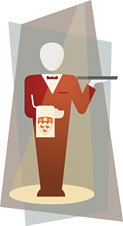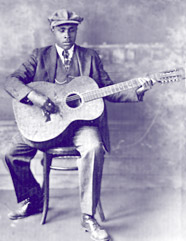Newsbites (Page 5)
At Your Service
When the Princeton Review's Best 357 Colleges recently rated McGill as the top university in North America for students of different backgrounds interacting, it also placed the University in the top ten for long lines and red tape. Last year, for example, line-ups for ID cards during Orientation Week swelled dramatically, to the frustration of many students.
This year was a different story. Line-ups were almost nowhere to be found. Second- and third-year students were even heard to be complaining that freshmen were not having to run the long ID gauntlet like they had to in their first year.

Illustration: Jean-Bernard Sun
"The ID card is now much more useful to the students," says McGill Registrar Sylvia Franke. "They actually need that ID card in order to get into their rooms in residence and to get their meals. We had to rethink how we deliver the service, because the students want them as soon as they arrive on campus."
It's all part of an emphasis on improving service to students at McGill. Course registration became much simpler when it moved to the Internet two years ago. (The previous telephone-based system known as MARS was so despised by students that the woman who provided the friendly automated voice of the "MARS lady" hid her identity.)
Undergraduate admissions have recently switched to a paperless process, so applicants inquiring about their admissions files can now usually be answered on the spot. And Franke says this year's "Spotlight on Service" workshop brought frontline staff from the four corners of the campus together to identify ways to reduce the run-around that students face from multiple service counters.
Principal Heather Munroe-Blum says the administration plans to consult with students, staff and faculty about how to improve the student experience even more."We're on the right track," she told the McGill Reporter. "There have been major improvements in how the University welcomes and integrates new students. For example, we have the new residence [on Park Avenue] to further accommodate first-year students who wish to stay in residence, and ID card wait times were virtually non-existent due to extended hours in August and weekend service during the residence move-in period. Increased staffing levels to respond to student inquiries - on the phone, on the Web and at the front desk - have made the start of the year a positive experience for newcomers and returning students alike. And there is more to do."
An Ear for Music

New research from the Montreal Neurological Institute and McGill indicates that blind people are better than the sighted not only at hearing but at pitch discrimination as well, and their blindness may aid in musical development. Cognitive neuroscientist Robert Zatorre and colleagues at McGill and Université de Montreal have shown that the blind are better at judging the direction of pitch change between sounds - but only if they became blind at an early age, a factor that had not been taken into account in previous explorations of the notion.
The blind are known to be better at orienting themselves spatially by sound, but this is the first research to suggest better performance in listening skills related to pitch and music. The tests compared the performance of early-blind people (where the onset of blindness was 0-2 years after birth), late-blind people (onset of blindness occurring from age 5 to 45), and sighted people in judging the direction of a changing pitch. "Earlyblind subjects showed significantly better overall performance," according to the research findings published in the journal Nature in July, and they continued to make correct distinctions as the notes got either shorter or closer in pitch. There were no significant differences in performance between sighted and late-blind subjects.
Zatorre says that the idea that blindness can aid musical development is an old one. However, previous studies have not been able to quantify this, possibly because they did not take into account the age at which subjects went blind.


